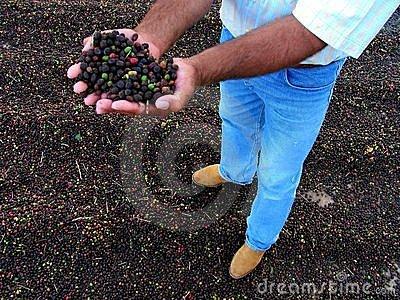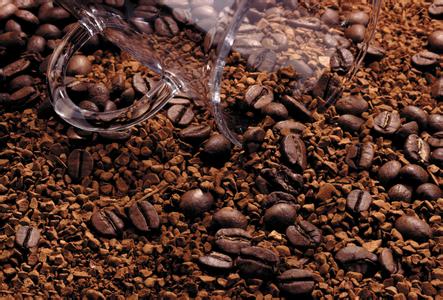Taste description of Brazilian South Minas Coffee in Tropical Rain Forest region
Taste description of Brazilian South Minas Coffee in Tropical Rain Forest region
According to this standard, the producing areas of Brazil can also be divided into five grades:
Extremely meek: South Minas, Serrado platform in the central and western part of Minas / Mojiana / Bahia Diamond Plateau in northeastern Sao Paulo province
Supple: slightly higher in Bahia / Minas southeast forest / Parana / San Espiritu (mausoleum) / central and western S ã o Paulo
A little softer: East and northeast of Minas
Not easy to read: Espiritu Santo / Parana (low altitude)
Iodine choking: slightly lower southeast of Minas / Espiritu Santo (flat)
At present, there are 2 million hectares of land in Brazil for growing coffee, and the largest is Arabica. These beans will eventually be sent to large bakers in various countries, that is, the well-known Santos (named after the port of export santos, not the producing area). Because of the coffee competition after 2000, the quality of coffee beans produced in the high-altitude areas of the south was appreciated, mainly by the farms around the Minas platform. Coffee quality is also the largest among Brazilian beans, such as Syracuse in the west of Minas and Matas in the east, Bashiya in the north or small farms in the south. Minas has almost become synonymous with Brazilian boutique coffee. In recent years, the coffee competition is accurate to be separated by treatment (water treatment / half-washing / half-sun / sun-drying), which has developed a variety of flavors, taste and finish, which is quite different from traditional Brazilian coffee. In particular, the half-sun method and the sun method perform best.

Important Notice :
前街咖啡 FrontStreet Coffee has moved to new addredd:
FrontStreet Coffee Address: 315,Donghua East Road,GuangZhou
Tel:020 38364473
- Prev

Can Columbia's exquisite coffee beans be matched with Manning?
Can Columbia Linglong Coffee beans be mixed with Mantenin? ripe beans taste well balanced, full of aroma, slightly bitter and sweet, echoing bright fruit acidity, moderate fruit taste, mild chocolate taste when shallow baking, near second explosion is similar to bitter sweet or heavy chocolate, entering the initial stage of second explosion is the best, mellow is very good, rich in oil, usually like to drink Southeast Asian beans.
- Next

The characteristic price of taste and roasting degree of Colombian Huilan coffee
Columbia Huilan coffee taste roasting characteristics price Huilan area belongs to the mountain terrain, coffee is also planted on the slopes of the canyon, so it has a high altitude to grow high-quality Arabica beans, as well as the right temperature. The climate of the canyon slope not only prevents the cold wind from blowing in, but also keeps the mountain breeze cool without high temperature, and Rain Water is also relatively abundant, which can be said to be a unique coffee plant.
Related
- Detailed explanation of Jadeite planting Land in Panamanian Jadeite Manor introduction to the grading system of Jadeite competitive bidding, Red bid, Green bid and Rose Summer
- Story of Coffee planting in Brenka region of Costa Rica Stonehenge Manor anaerobic heavy honey treatment of flavor mouth
- What's on the barrel of Blue Mountain Coffee beans?
- Can American coffee also pull flowers? How to use hot American style to pull out a good-looking pattern?
- Can you make a cold extract with coffee beans? What is the right proportion for cold-extracted coffee formula?
- Indonesian PWN Gold Mandrine Coffee Origin Features Flavor How to Chong? Mandolin coffee is American.
- A brief introduction to the flavor characteristics of Brazilian yellow bourbon coffee beans
- What is the effect of different water quality on the flavor of cold-extracted coffee? What kind of water is best for brewing coffee?
- Why do you think of Rose Summer whenever you mention Panamanian coffee?
- Introduction to the characteristics of authentic blue mountain coffee bean producing areas? What is the CIB Coffee Authority in Jamaica?

